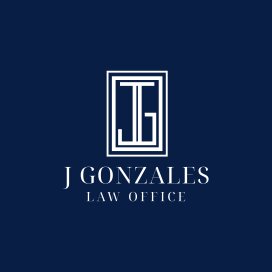Best Lawyers in Manila
Share your needs with us, get contacted by law firms.
Free. Takes 2 min.
List of the best lawyers in Manila, Philippines
Philippines Legal Questions answered by Lawyers
Browse our 263 legal questions in Philippines and read the lawyer answers, or ask your own questions for free.
- Separated but not legally - financial status
- My husband and I have been separated (not legally) since October 2025. The separation is not formal, as I chose to leave our home due to the verbal and emotional abuse I experienced daily. My husband has not worked for the past eight years, and I have been the sole... Read more →
-
Lawyer answer by Recososa Law Firm
Hello: Thank you for sharing your situation. I understand how emotionally exhausting this must be for you. I am the owner of Recososa Law Firm, and we are located in the Philippines, with offices in Luzon, Visayas, and Mindanao. Presuming...
Read full answer - Spouse separated in fact - financial status disclosure
- My husband and I have been separated (not legally) since October 2025. The separation is not formal, as I chose to leave our home due to the verbal and emotional abuse I experienced daily. My husband has not worked for the past eight years, and I have been the sole... Read more →
-
Lawyer answer by Recososa Law Firm
Hello: Thank you for sharing your situation. I understand how emotionally exhausting this must be for you. I am the owner of Recososa Law Firm, and we are located in the Philippines, with offices in Luzon, Visayas, and Mindanao. Presuming...
Read full answer - is the 200k annulment fee has to be paid i full?
- me and my ex has been separated for almost 16 years. i really want an annulment. we got married as soon as we turned 18. i didn't get any consent from my parents. and my ex doesn't have work up until now.
-
Lawyer answer by ERLAW
Atty. Roque here, an annulment lawyer from Roque Law Office. Based on what you shared, being separated for 16 years alone is not yet a ground for annulment under Philippine law. However, getting married at 18 without parental consent may...
Read full answer
Philippines Legal Articles
Browse our 18 legal articles in Philippines written by expert lawyers.
- Managing Labor Inspections for BPOs in the Philippines
- Managing Labor Inspections for BPO Companies in the Philippines The Department of Labor and Employment (DOLE) conducts unannounced inspections to verify compliance with General Labor Standards and Occupational Safety and Health standards. BPO companies must maintain meticulous payroll records covering the past three years to prove payment of night shift... Read more →
- Set Up a Foreign-Owned Corporation in the Philippines
- Setting Up a Foreign-Owned Domestic Corporation in the Philippines Key Takeaways Foreign investors can successfully incorporate and operate within the Philippine market by following highly structured national and local regulations. Successfully establishing your business requires understanding foreign ownership limits, meeting specific capital requirements, and navigating multiple government agencies. The Foreign... Read more →
- Guide to BSP Fintech Regulatory Compliance in the Philippines
- Fintech companies in the Philippines are primarily regulated by the Bangko Sentral ng Pilipinas (BSP) under the Manual of Regulations for Non-Bank Financial Institutions. Minimum capital requirements range from PHP 20 million to PHP 200 million, depending on the license type and business model. All fintech startups must register with... Read more →
About hiring a lawyer in Manila, Philippines:
Hiring a lawyer in Manila, Philippines, can be a crucial decision when you are facing legal issues. It is essential to find a lawyer with expertise in the specific area of law that pertains to your case. The process typically involves researching potential law firms, scheduling consultations, discussing fees, and ultimately selecting a lawyer who you feel comfortable working with.
Why You May Need a Lawyer:
There are several common situations where people may require legal help in Manila, Philippines, such as dealing with real estate transactions, drafting and reviewing contracts, resolving family disputes, navigating business regulations, handling criminal charges, and seeking compensation for personal injuries. Having a lawyer by your side can provide you with legal guidance, protect your rights, and ensure that your best interests are represented.
Local Laws Overview:
In Manila, Philippines, lawyers are well-versed in a wide range of laws, including civil law, criminal law, family law, labor law, and business law. It is important to understand that Philippine laws are based on the country's legal system, which combines elements of Spanish civil law and American common law. Lawyers in Manila are required to adhere to the rules and regulations set by the Integrated Bar of the Philippines (IBP) and maintain ethical standards in their practice.
Frequently Asked Questions:
1. How do I choose the right lawyer for my case?
It is essential to consider the lawyer's expertise, experience, reputation, and communication style when choosing a legal representative in Manila, Philippines. Additionally, you may want to schedule consultations with multiple lawyers to assess their compatibility with your needs.
2. What are the legal fees I should expect to pay?
Legal fees in Manila, Philippines, can vary depending on the complexity of your case, the lawyer's experience, and the billing structure. It is advisable to discuss fee arrangements, including hourly rates, flat fees, or contingency fees, with your lawyer before engaging their services.
3. How long will my case take to resolve?
The timeline for resolving a legal case in Manila, Philippines, can vary depending on the nature of the issue, the legal process involved, and the court's schedule. Your lawyer can provide you with an estimated timeline based on their experience with similar cases.
4. What should I expect during the legal process?
During the legal process in Manila, Philippines, you can expect your lawyer to explain the relevant laws, guide you through court procedures, gather evidence, communicate with opposing parties, negotiate settlements, and represent you in court, if necessary.
5. Can I represent myself in court without a lawyer?
While you have the right to represent yourself in court, it is often advisable to seek legal representation in Manila, Philippines, to ensure that your rights are protected, and your case is presented effectively. Lawyers have the expertise and experience to navigate the legal system on your behalf.
6. How can I verify a lawyer's credentials in Manila, Philippines?
You can verify a lawyer's credentials in Manila, Philippines, by checking the official website of the Integrated Bar of the Philippines (IBP), contacting the Supreme Court of the Philippines, or requesting references from the lawyer's previous clients.
7. What are the ethical standards for lawyers in Manila, Philippines?
Lawyers in Manila, Philippines, are required to adhere to the Code of Professional Responsibility set by the IBP, which outlines the ethical duties and responsibilities of legal practitioners. Violations of ethical standards can result in disciplinary actions by the IBP.
8. Can I switch lawyers during my case?
If you are dissatisfied with your current lawyer in Manila, Philippines, you have the right to terminate the attorney-client relationship and engage a new lawyer. It is essential to communicate your decision clearly and resolve any outstanding fees or issues before transitioning to a new lawyer.
9. Will my conversations with my lawyer be confidential?
In Manila, Philippines, communications between a lawyer and their client are generally considered confidential under the attorney-client privilege. This means that your lawyer is obligated to keep your discussions private and cannot disclose them without your consent, except in specific circumstances defined by law.
10. How can I reach out to a lawyer for legal advice in Manila, Philippines?
You can reach out to a lawyer for legal advice in Manila, Philippines, by scheduling a consultation through their law firm's website, contacting their office by phone or email, or seeking referrals from friends, family, or professional organizations.
Additional Resources:
For additional legal resources and assistance in Manila, Philippines, you can contact the Integrated Bar of the Philippines (IBP), the Supreme Court of the Philippines, the Philippine Bar Association, and local legal aid organizations. These institutions can provide information, referrals, and support for individuals in need of legal advice.
Next Steps:
If you require legal assistance in Manila, Philippines, consider reaching out to a reputable law firm specializing in the area of law that pertains to your case. Schedule consultations with multiple lawyers to discuss your legal needs, evaluate your options, and make an informed decision on hiring a lawyer to represent you. Remember to clarify fee arrangements, timelines, and expectations with your chosen lawyer to ensure a smooth legal process.
Lawzana helps you find the best lawyers and law firms in Manila through a curated and pre-screened list of qualified legal professionals. Our platform offers rankings and detailed profiles of attorneys and law firms, allowing you to compare based on practice areas, experience, and client feedback.
Each profile includes a description of the firm's areas of practice, client reviews, team members and partners, year of establishment, spoken languages, office locations, contact information, social media presence, and any published articles or resources. Most firms on our platform speak English and are experienced in both local and international legal matters.
Get a quote from top-rated law firms in Manila, Philippines — quickly, securely, and without unnecessary hassle.
Disclaimer:
The information provided on this page is for general informational purposes only and does not constitute legal advice. While we strive to ensure the accuracy and relevance of the content, legal information may change over time, and interpretations of the law can vary. You should always consult with a qualified legal professional for advice specific to your situation.
We disclaim all liability for actions taken or not taken based on the content of this page. If you believe any information is incorrect or outdated, please contact us, and we will review and update it where appropriate.
Refine your search by selecting a practice area.



































